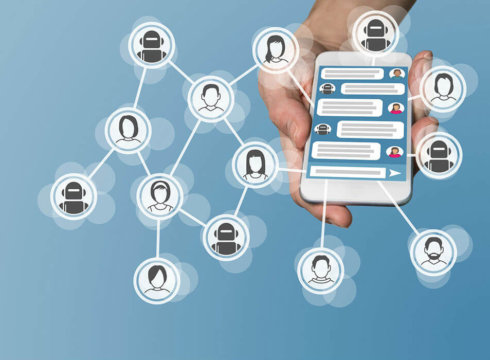SUMMARY
Chatbots Can Provide High-quality Service To Modern Consumers Through Urgencies, With Ease And Convenience.
Inc42 Daily Brief
Stay Ahead With Daily News & Analysis on India’s Tech & Startup Economy
AI, machine learning and chatbots have become one of the most talked about and disputable technologies over the past years. They have shown huge potential in changing nearly each and every industry including sales. Chatbots, in particular, prove to be a pure joy as well as a boon to businesses. They are extensively used to supplement human customer service and boost its quality.
People have now begun wondering whether chatbots are ready to claim their place as a crucial marketing channel. Chatbots implemented in messaging apps are a powerful tool to reach out as well as to convert, activate and engage customers.
Realising the wide scope of chatbot opportunities, companies across the globe are leveraging this technology as a productive customer touchpoint. The direct impact on sales and conversion is a crucial topic for the business owner to consider.
What Is A Chatbot?
A chatbot is an artificially intelligent system that is used by business to communicate with the customer inside messaging apps. Via natural language processing, chatbots learn to recognise customer requests and provide a relevant answer. Nowadays, there are more advanced chatbots that use machine learning in order to give authentic and personalised UX.
Responses are less robotic and more informed.
Machine learning provides chatbots with the ability to create new responses to new input without considering prior programming, simply using past data. Those advanced chatbots prove to enhance customer relations. Nowadays, high-quality service is the one that reacts to the needs of the modern consumer: urgency, ease and convenience. A chatbot enables a client to interact with the business 24/7, whether making a purchase or receiving product information of any kind.
Why Should I Think About It?
Before implementing chatbots into business, a marketing professional or business owner will consider technology from different perspectives, because each of them has their own goals.
The task of marketing is to find and to reach a target audience as well as to communicate the way a product can solve the customer’s problem. Businessmen aspire to increase sales and to raise revenue. Chatbots can handle both.
The growth of messaging apps’ popularity has gradually broadened the sphere of activity. Regarding Messenger as a place to chat with friends means to underestimate the scope of its potential.
People like using messaging apps and prefer to spend the majority of their time using them. Facebook Messenger has 1.2 billion active users per month. Thus, it is a logical step to market customers where they already are.
Chatbot Opportunities
Identifying the lead at the right time. A business may receive considerable traffic by virtue of promotional expenditure. However, it may not be converted into tangible sales, very much unlikely. In case the user follows through with the content, the sales vortex will work.
By implementing a chatbot a customer gets prompted when he is browsing something specific. The point is, that the user may not have an intention to buy.
Larger engagement capacity. After the conversation with a human, the chatbot can remind a customer from time to time about the product through sending product updates and promotional offers. It all goes directly to the customer’s message box and there is a high chance it will be opened and read.
A chatbot inside Messenger does not have to target, so it can be displayed to a vast and varied audience.
Data collection and analysis. When a user posts casual comments, they actually provide important information. A person voluntarily gives valuable data concerning latest purchases, residential areas, hobbies and preferences. Chatbots can accumulate and analyse these red flags which have a high chance to be missed by personnel.
People tend to behave and talk more freely when they know exactly who they interact with. The same policy is applied to chatbots. People are not willing to fill in surveys, a bot gathers feedback by softly asking needed questions, so feedback is collected based on humans’ responses.
A/B product testing. Basically, artificial intelligence steals the job of a marketer. A company has a chance to test two product offers at the same time. For instance, 500 people from the audience test one wording, product presentation, and positioning, the other 500 test the second version. This option gives a clear understanding of which positioning works better.
Driving sales. By instant reaction to a problem with an appropriate solution, a chatbot becomes a tool for driving sales. When a bot has all the vital data collected — customer’s behaviour — it offers the right product. The interaction between the bot and the customer starts with the greeting and moves along to the selection, then to the order and finally to payment collection. A fast and flawless chain of events, devoid of human mistakes.
In summary, weaving artificial intelligence into business is effective and in perspective, just as much as the costly undertaking. Feasibility should be taken into account: if the top companies do not hesitate to introduce technology into their operations, a medium-sized business must think twice. Poorly designed and primitive chatbots — just like any other tool used unconsciously — can be destructive and deter customers once and for all.
Note: We at Inc42 take our ethics very seriously. More information about it can be found here.


